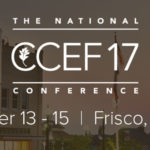 Julie Lowe opened the day with a session challenging us on how we nurture relationships. We should desire flourishing in our relationships and conversations. There are no ordinary people. Each person we encounter has a soul and eternal destiny. How do we give without expectations and strings attached? How do we have the mind of Christ called for in Philippians 2?
Julie Lowe opened the day with a session challenging us on how we nurture relationships. We should desire flourishing in our relationships and conversations. There are no ordinary people. Each person we encounter has a soul and eternal destiny. How do we give without expectations and strings attached? How do we have the mind of Christ called for in Philippians 2?
Julie mentioned that we often try to imitate Christ by relying on our own moral fortitude, rather than letting the love and grace of Christ flow in and through us, like being under a waterfall of grace. “Far too often we try to replicate Christ-likeness.” Like children willing to play in mud-water, we build distortions of beautiful things.
“What God has asked of you and I, can not be accomplished by sheer grit or human determination.” There is a big difference between the morally restrained heart and the supernaturally changed heart. Many times in relationships we give in order to get something back. We expect to get a return on our investment.
Julie encouraged us to look at Christ because when we see him we will be changed by Him. “Beloved, we are God’s children now, and what we will be has not yet appeared; but we know that when he appears we shall be like him, because we shall see him as he is.” – 1 John 3:2
Paul in Philippians 2 challenges us to do nothing out of selfish ambition and vain conceit. Julie explained that “You and I must risk being misunderstood if we genuinely want to have meaningful conversations with others.”
We must consider that we are called to give grace and life to our listeners. “Do my words and actions give life or decay?… Our speech is not neutral. It will either give grace to our family and extended family or lead to decay.”
Julie ended with a quote from B.B. Warfield in his work “Imitating the Incarnation”:
Self-sacrifice means not indifference to our times and our fellows: it means absorption in them. It means forgetfulness of self in others. It means entering into every man’s hopes and fears, longings and despairs: it means manysidedness of spirit, multiform activity, multiplicity of sympathies. It means richness of development. It means not that we should live one life, but a thousand lives,—binding ourselves to a thousand souls by the filaments of so loving a sympathy that their lives become ours.
<< View the other CCEF17 main session summaries here. >>






